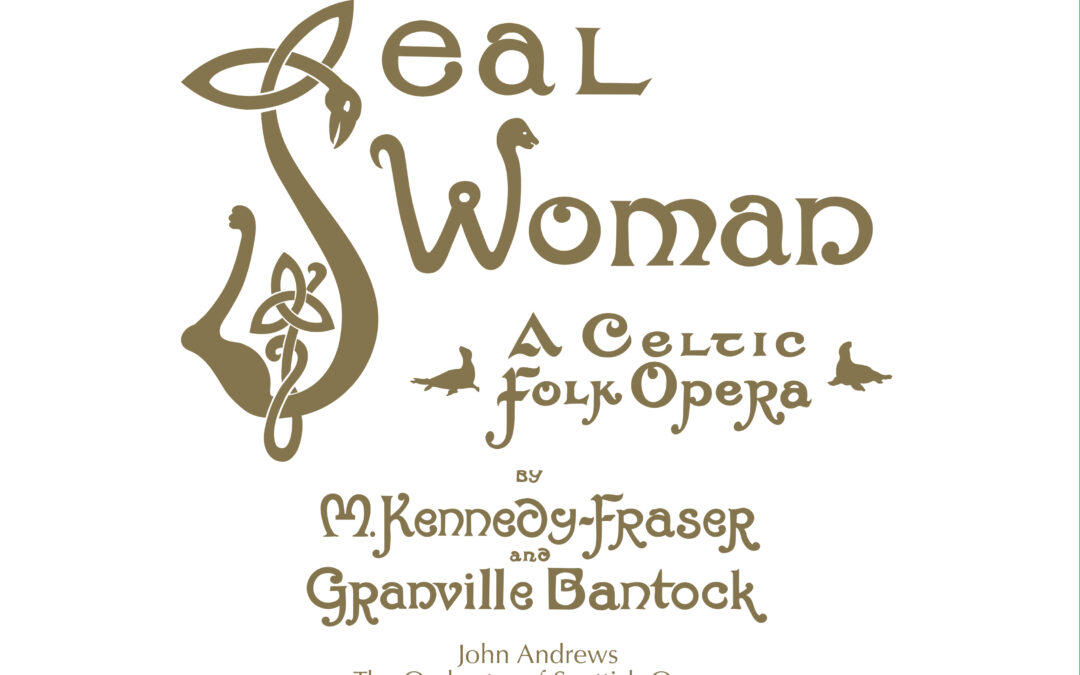John Andrews Conductor
Soloists & The Orchestra of Scottish Opera
Retrospect Opera RO 012 (two CDs)
Decades ago there was a short-lived production of The Seal Woman in West London, which somehow eluded me: I’ve been waiting many years to discover what I’d missed.
This ‘folk opera’ is the work of Bantock and song collector Marjorie Kennedy-Fraser, whose arrangements of Hebridean folk songs were renowned in the last century (though now generally regarded as inapt and insensitive) and which Bantock used freely. (There is an especially haunting Slow Rowing Song).
The plot, such as it is, relates the tale of The Islesman who coaxes a Seal Woman to take human form and live with him until some years later she abandons him for her old life in the sea. It is narrated by the Cailleach or (ahem) Old Crone, and of the eleven-strong cast only one has an actual name. Clearly, we should not look for conventional naturalism: will the composer and librettist find other ways to involve us?
Given the smallish ensemble Bantock coaxes a surprising range of colours from his band. (There is a lot of watery rippling harp). The rapt mood of the dreamlike opening is not so distant from that of The Immortal Hour – though Boughton’s bleak masterpiece has a psychological and musical complexity that this simpler tale lacks.
Alas Kennedy-Fraser was no dramatist; the early scenes mostly comprise individuals soliloquising dreamily, the pace stately at best or glacial at worst; too many scenes have no dramatic purpose at all, and are simply there to air another folk tune. Despite the eloquence of the melodies, emotion is mostly painted on from the outside rather than internally generated, while the rather perfunctory climax arrives out of the blue, and seemingly involves no real pain or cost to the protagonists.
It would take a director of real vision to bring The Seal Woman to life and avoid the pitfalls of unintended laughs – though I’d love to see it: but the sheer lack of dramatic tension would be a real staging problem. (Tension is nothing to do with ‘action’: in Parsifal almost nothing happens for ages, but the intrinsic tension is overwhelming.)
Throughout the performance is well played and sung, although sometimes some rather RP accents do not entirely convince. The extensive booklet notes are thorough and absorbing. This was clearly a labour of love.
Was it worth the wait? For me, the jury’s probably still out. But there’s no question it is good to have this extremely enterprising release to let us all decide for ourselves. (And any chance of some Boughton next? I’m good for £50.)
Review by Kevin Mandry

